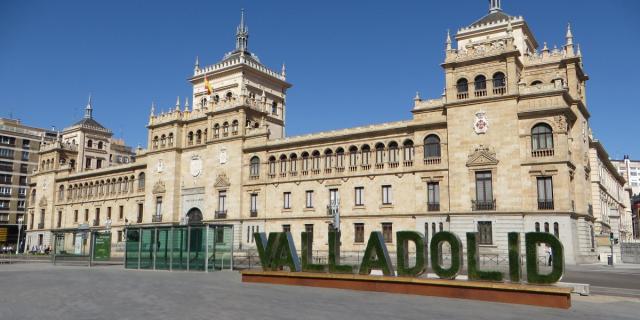As we are more and more facing some environmental issues, pollution being the first factor being looked and worked at, Cities are slowly changing their landscape to better adapt transport and improve human’s health, reducing traffic, improving public transportation, offering alternatives that combine mobility, flexibility and pleasure.
Paris : The lead to Smart Mobility?
The city of Paris received the trophy of the electromobile territories presented by AVERE France on December 17th, 2014. This award rewards the City's commitment in the fight against air pollution and its action in favor of electromobility.
Background
Paris is France's most populous city, it is third among European urban areas behind Moscow and Istanbul and the 29th most populous in the world. As of 1 January 2013, Paris outnumbered more than 2.2 million inhabitants. The Paris metropolitan area grew largely during the 20th century, bringing to 10.6 million inhabitants on 1 January 2013, and its urban area (the agglomeration and the periurban ring) had 12.4 million inhabitants.
Air pollution was and still is a public health concern in Paris, which motivated the creation of the Airparif surveillance network in 1984 and, since 2001, policies to reduce vehicles’ usage and in particular to reduce pollutants. The urban density of Paris, three times that of London, involves taller buildings, fewer townhouses and smaller green spaces (2,300 hectares including woodlands) Apart from the creation of the Parc de la Villette in the 1980s, the reconquest of green spaces is very recent.
Mobility Challenges
In 2016, the City of Paris conducted a study regarding the usage of vehicles inside Paris, providing the following figures:
- 80% of the vehicles riding in Paris are transporting only 1 person
- More than half of the drivers drive only inside Paris
- 80% of Paris rides are done on private use not professional
- Only 22% of the Drivers in Paris need their cars.
Paris is facing massive traffic congestion, heavy pollution every month…not just the centre of Paris but the larger zone of Ile de France also is impacted by traffic congestion, and pollution, and noise…
Paris also is:
Infrastructures
- 4.1 million users who transit through the metro each day in Paris
- 1.479 million the number of journeys done in Paris annually
- 48, the average number of users per second
In terms of infrastructure, Paris has developed many different public transportation, from the fastest to the cleanest way of commuting:
- 23000 velib’ (public bike sharing)
- 400 autolib’ (public electric vehicles’ sharing)
- 16 metro lines
- 300 metro stations
- 597km of bus lanes
Although many different actions were undertaken to avoid pollution, traffic congestion, combining different solution according to the issues faced, Parisian are wasting each day 40 minutes in Traffic, that is an average 154 hours equal to 6.5 day equivalent per year.
Changes have to occur, but changes take time and therefore specific rules must be applied and obeyed until Paris can answer fully it’s users’ needs
Regulation
On January 15th 2017 Paris has become the first City with a restricted traffic zone. But what does this mean? Paris is now a zone where air pollution will be fought through different initiatives and measures implemented by the government or the city of Paris itself.
To circulate in a designated zone when pollution is reaching a peek you will as of January 15th need a specific sticker Crit’Air on your windshield. The sticker shows the level of pollution of each vehicles and is charged 4.18€. The most polluting ones, non- classified, are not able to get this sticker and are automatically banned from the designated zone during the week from 8am till 8pm. The sticker is printed according to your car registration number.
This measure is a real improvement compared to the previous rules, where circulation was alternated between even and odd numbers.
Should you fail to respects these measures, a fine of 68€ will apply in Paris.
The less polluting your vehicle is, the more you will benefit from advantages such as free parking space and authorization to drive when polluting alerts are triggered and traffic is being restricted.
While working hard at improving citizens health and mobility, the city has also studied the professional market and reached some attractive offers to switch to greener mobility for professionals also.
If you are a professional in Paris or near (92, 93 and 94 districts) but working in Paris (in an SME of less than 10 employees), Paris offers aids to professionals who wish to replace an LCV or a truck with a new or used electric or natural gas (CNG) utility vehicle.
The aid relates to acquisition, long-term lease or leasing with purchase option:
- 3000€ if <2.5t
- 6000€ if>2.5t
- 9000€ for electric trucks or CNG
- (up to a limit of 15% of the purchase price)
The city has even launched in a test phase utilib’, a professional LCV sharing offer, providing currently 10 LCVs inside Paris.
Of course by encouraging electric vehicles, Paris needs to implement a wider network of fast charging stations in the years to come.
Today in Paris, Autolib provides 600 charging stations but there is a new comer Betlib, offering 180 public charging station for EV and willing to expand even more inside and outside Paris in the coming years.
What’s next?
Currently Paris is working on its train and metro extensions but also on adapting the river banks, diverting traffic outside the centre of Paris, providing free public transport when pollution is reaching a peek…. As well as incentives to switch from your vehicle to public transport ( up to 400€).
It is highly expected that if Paris were to be awarded the Olympics in 2024, changes might occur sooner than later.
Sources: www.avere-france.org, www.planetoscope.fr, www.autolib.eu; www.auto.bfmtv.com, www.paris.fr



